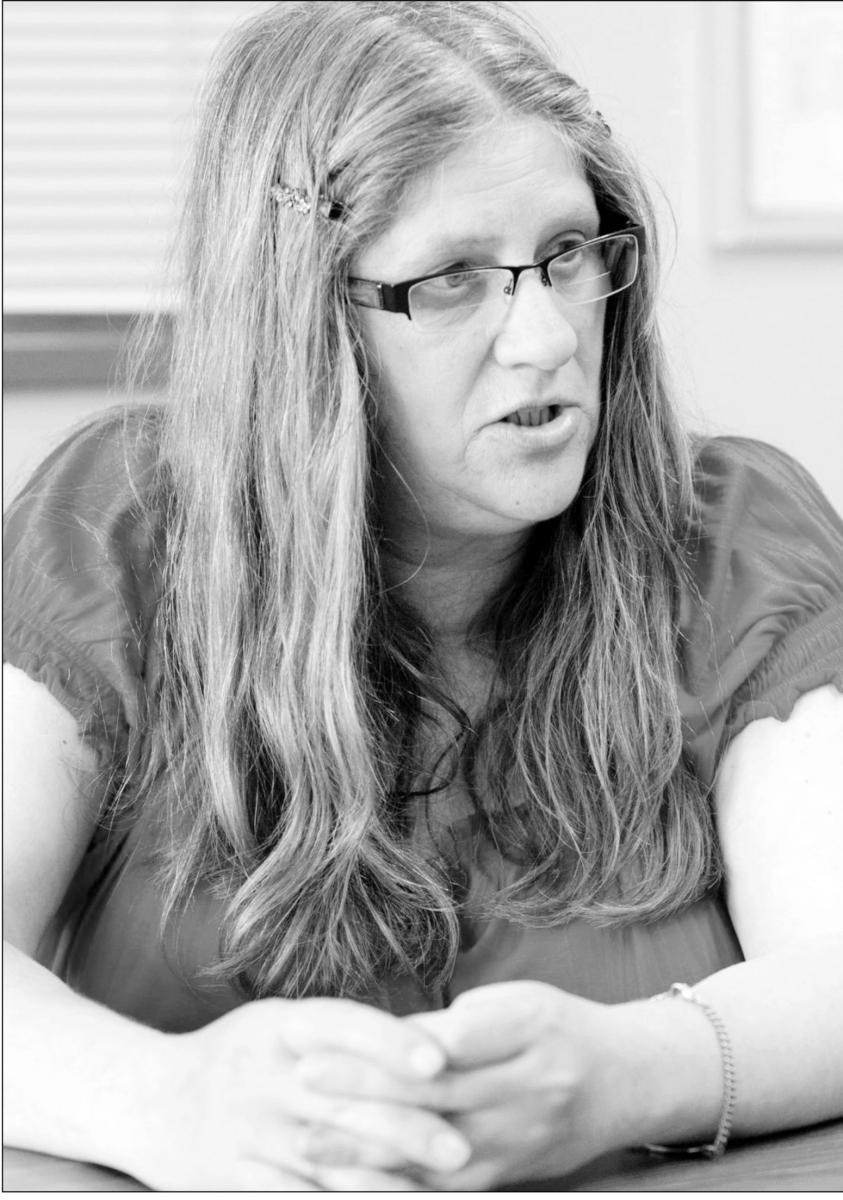Facing her alcoholism was hard for Sooke mother Cathy Tierney, but the toughest blow was the diagnosis of fetal alcohol syndrome in her two sons.
"I quit drinking and I found out about their diagnosis," Tierney said. "That was tough because of the guilt."
That was back in 2004. Tierney had embarked on living sober, regaining custody of her sons, now 15 and 17. She then opted to have them tested for fetal alcohol exposure. Learning the truth was essential for her boys and her.
"I wanted the boys to get diagnosed so we would know just what we were dealing with," Tierney said.
Fetal alcohol syndrome, also known as fetal alcohol spectrum disorder, is the physical and mental defects resulting from exposure to alcohol while a baby is still in the mother's womb.
According to the Public Health Agency of Canada's website, the effects can range from mild to severe and include physical, brain, and central nervous system disabilities, including cognitive, behavioural and emotional issues.
One alarming disability is an inability to connect cause and effect. People with fetal alcohol spectrum disorder can repeatedly find themselves in trouble - with teachers if they are children, with the law if they are adults - because they can't anticipate the action they are about to undertake will get them in trouble.
The Public Health Agency of Canada is almost completely stark in its prognosis for anyone effected by the disorder: "FASD cannot be cured and has lifelong impacts on individuals, their families, and society."
But neuropsychologists conducting research at the University of Victoria and the Queen Alexandra Centre for Children's Health believe there is new hope for people with FASD. It can be found in the well-documented phenomenon called neuroplasticity, and the techniques of mindfulness.
"There is good reason to be optimistic," said UVic neuropsychologist Colette Smart, who is researching neuroplasticity and mindfulness with FASD patients and looking for volunteers for her research.
Neuroplasticity is a term coined in recent years to describe the ability of the brain and other parts of the nervous system to create new pathways to compensate for previous damage.
"We know that the brain can change over time and that's basically what neuroplasticity means," Smart said.
Meanwhile, "mindfulness," as used by psychologists, refers to mental techniques of bringing complete attention to an experience on a moment-to-moment basis. So people are taught to recognize signals that can prompt certain behaviours and recognize their distinct sensations, reactions and feelings.
For example, a person who is learning to control anger responses might be taught to focus on breathing to avoid sudden outbursts.
Smart has conducted previous research with people with brain injuries and mindfulness techniques and achieved encouraging results.
She also noted mindfulness techniques have been proven successful in assisting people diagnosed with attention deficit disorder, a frequent accompanying diagnosis to FASD.
"From the field of cognitive rehabilitation there is good evidence to say that people with all kinds of different brain damage can improve with the right treatment," she said.
Kimberly Kerns, Smart's UVic research colleague, said people who have FASD have a range of difficulties, but most notably they have great difficulty foreseeing the consequences of their own actions.
Similarly, they have trouble understanding nuances, such as irony.
They can be easily persuaded or suggestible, which makes them easy marks for manipulative criminals or trained police interrogators.
Experts agree people with FASD are represented in the prison population at rates much higher than the one per cent FASD rate in the general population.
"You've got a real vulnerable population here," said Kerns, who wants to raise awareness of the problems experienced by people with FASD.
"People should understand the difficulties [people with FASD] are having aren't the result of wilful misbehaviour, or that they are just aren't trying hard enough," Kerns said.
"If we can understand these people are having real difficulties, then our whole approach becomes different."
Meanwhile, Tierney and her sons continue to work with the school system and at times with the justice system and social services.
It's a struggle she continues for no other reason than her sons deserve it, she said. "My boys deserve to have everything that's out there."
After all, they didn't bring the alcohol exposure on themselves.
Tierney said with both sons, she stopped drinking as soon as she found out she was pregnant.
But both times, it was weeks into the pregnancies and too late to avoid the exposure. "It's not a matter of anybody's fault - it just happened," she said.
But Tierney holds one truth before her at all times. Both her sons are good boys who love their mom.
And every once in a while, she sees them making breakthroughs.
"My oldest was doing something wrong the other day and I said, 'Well, honey, you've got FAS,' " Tierney said.
"And he turned around and said, 'Mom, stop blaming the FAS, I did it.'
"I thought, Whoa, what a smart kid. There he is, taking responsibility."
VOLUNTEERS WANTED
University of Victoria researchers are seeking volunteers, ages 11 to 15, who have already been diagnosed with fetal alcohol spectrum disorder.
The research is aimed at developing new intervention techniques to assist people with FASD.
Anyone who is interested can contact neuropsychologist Kimberly Kerns at 250-472-4195 or by email at [email protected]. More information can also be found at fasdatuvic.ca.
Next spring, the researchers will be looking for adult volunteers who have been diagnosed with FASD.
The researchers note they are interested only in people who have already been diagnosed. Resources don't exist to screen suspected cases.
Richard Watts



